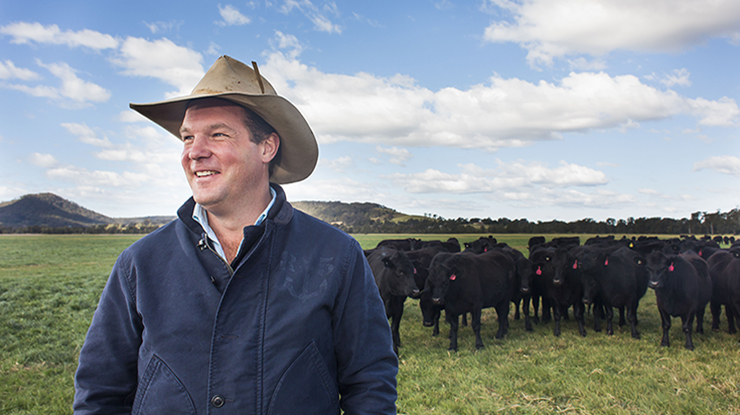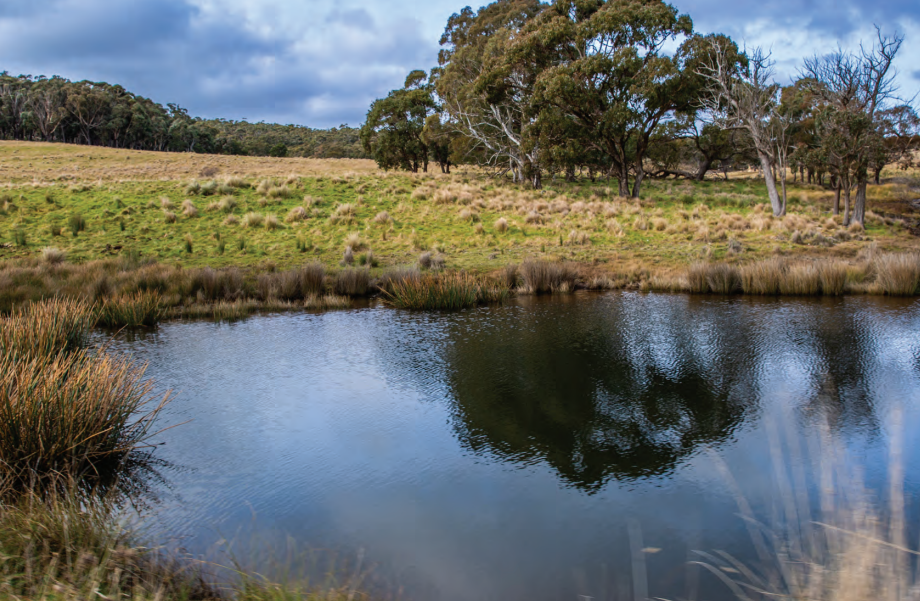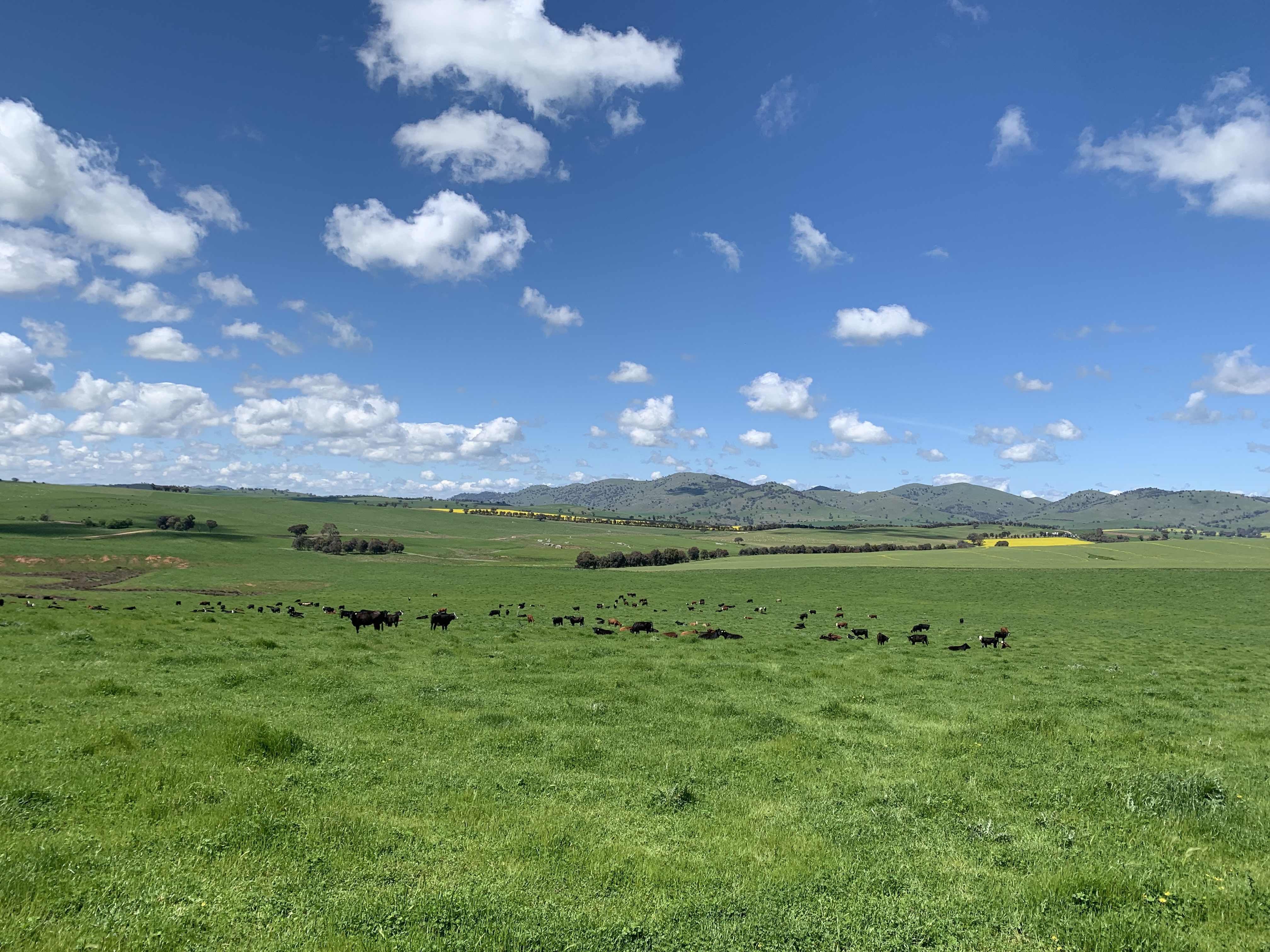 Argyle's CEO Lachlan Graham
Argyle's CEO Lachlan Graham
Insights from a carbon journey
Navigating the road to carbon farming can be challenging. Here, one Australian red meat business opens the gate to share their approach, to equip other producers to establish profitable carbon strategies.
Argyle Carbon is a division of Argyle Foods Group – a vertically integrated red meat and livestock business with operations across Australia and in Hong Kong.
Argyle Carbon was set up with the goal to make an impactful environmental change, hand-in-hand with maintaining farm productivity and increasing profitability.
The company’s production arm, Argyle Pastoral, which covers grazing properties in NSW and Queensland, has registered three projects to support their on-farm decarbonisation strategy.
Argyle received support under MLA’s Co-Innovation program, which is designed to assist industry build capability in solving priorities outlined in MLA’s Strategic Plan 2025.
Business drivers
The first step in Argyle's carbon journey was to understand what activities were eligible to generate credits from, which would also support their broader business strategy.
For Argyle Carbon’s Production and Commercial Manager, Naomi Leahy, heading down the carbon road was a logical fit.
“Farming and environmental stewardship go hand-in-hand,” she said.
“With the Australian Government building up markets to reward this stewardship, producers have a real opportunity to pilot innovations to improve the resilience of our land while generating secondary income streams.
“Clarity of the key business drivers is important for anyone looking to undertake a carbon project.
“For us, it’s key that our carbon sequestration and emission avoidance activities complement our broader business strategy and help grow our business.”
Registering methodologies
Argyle Foods Group has registered two projects under the carbon sequestration methods (reforestation and soil carbon sequestration) and an emission avoidance methodology (beef herd management).
Activities under these methodologies – which are being implemented to improve soil and animal health – include:
Carbon sequestration:
- planting native trees
- longer pasture rotations during cropping
- enhancing the management of inputs to maximise soil health.
Emissions avoidance:
- reducing the time taken to turn off cattle (which reduces emissions).
While the benefits of registering the projects was warranted, Argyle’s CEO Lachlan Graham said it wasn’t a straightforward process. He encouraged producers to seek support to make the process easier.
“When we started our carbon journey in 2019, the companies that exist today weren’t around, so we needed to do it ourselves. Thankfully, there’s now an emerging sector of capabilities which can support producers.
“Given what we have learnt ourselves, as well as building up a highly skilled team, Argyle Carbon is also now available to support other producers on their journey.
“Part of our service is consulting to other farming businesses on the opportunities around carbon projects, carbon markets and general improved farming sustainability. We’re doing this ourselves, so our team is able to support producers from a unique point of experience.”
Research links
Argyle Carbon’s aim to increase the area of land under sustainable land management practices will optimise farm returns in the process.
To grow knowledge in this area, the company works with researchers across the country on industry projects.
One such partnership was with Matthew Harrison at the University of Tasmania, who helped guide Argyle Carbon on ways to improve their soil carbon.
“We knew we wanted to increase our beef production, and so transitioning our mixed farming property to move more crop into pasture supported this,” Lachlan said.
Argyle will introduce new areas of pasture and new pasture species, improve control of inputs such as fertiliser and implement stricter rotational grazing management, to increase the soil carbon across the property.

The landscape at Argyle's NSW property, 'Hillview'.
Long-term view
With soil carbon projects requiring a minimum 25-year commitment on the landowners’ behalf, Lachlan said the company was mindful of the flipside of management changes.
Argyle took a broader view to the farm operations in order to determine how its commitment to the carbon projects could be financially and environmentally positive in the long term.
“We have to be committed to this change if we want to make a genuine impact on our property,” Lachlan said.
“This commitment may mean we forego optimising financial returns annually when grain commodity prices are strong, so we need to take a longer-term view of both the costs and benefits.”
Data collection
Now that Argyle Carbon’s projects are registered, the next steps are to set baseline measurements and implement practice changes.
Registering projects under carbon methodologies requires historical, present and a commitment to future data, in order to accurately account for the carbon sequestration or emission avoidance.
The more data the better, but translating historical records, even paper form, into something which can be used in projects is key.
Lachlan said changes across the Argyle business in recent years – such as embracing technology and rigorous data collection – helped smooth this transition and supported the businesses to successfully register and implement carbon projects.
“Greater data collection and analysis, using digital agriculture, maintaining and improving our genetics, ensuring we maximise our joining and weaning rates – all of this helps our farm productivity, and contributes to decreasing our carbon output,” he said.
“Across the Argyle projects we’ve worked to continually evolve our data recording and pastoral management capabilities – and this has led to improved livestock management and the ability to capture new opportunities across our business more broadly.”

Cattle grazing at 'Argyle', where emissions avoidance activities focus on reducing the time take to turn off livestock.
Carbon credits
Argyle has been exploring the potential opportunities around generating an alternative revenue stream across the business through the monetisation of Australian Carbon Credit Units (ACCUs).
“We’ve spoken with international voluntary carbon fund managers as well as domestic banks and carbon funds who are willing to pre-pay for predicted ACCUs we will generate through our projects,” Lachlan said.
“We’re yet to make a decision and continue to work our way through the many options available to us as Australian landowners.
“Selling credits is a key decision for landowners, and it’s important to have access to information outlining the options.
“For the time being, Argyle is exploring the options, but will make a decision once the ACCUs are generated. This is one of the reasons why Argyle has followed the path of the Clean Energy Regulator, so ACCUs generated are eligible for both the regulated and voluntary market.”



